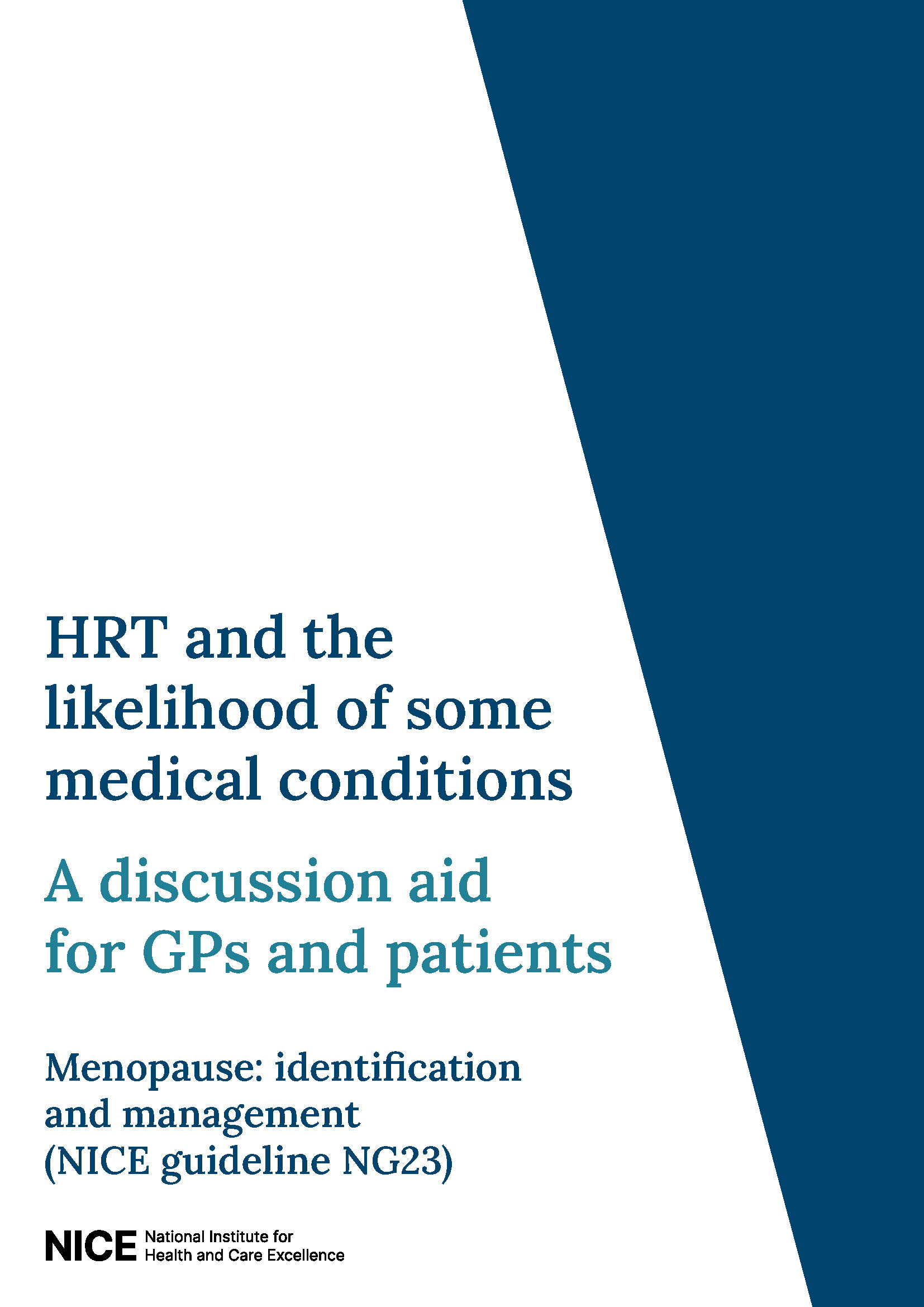Overview
This guideline covers identifying and managing menopause, including in people with premature ovarian insufficiency. It aims to improve the consistency of support and information provided to people experiencing menopause.
Last reviewed: 7 November 2024
We reviewed the evidence and made new recommendations on:
- managing genitourinary symptoms associated with the menopause
- the effects of hormone replacement therapy on specific health outcomes (including breast, endometrial and ovarian cancer, cardiovascular disease, dementia and life expectancy)
- cognitive behavioural therapy to manage menopause-associated symptoms.
These recommendations are marked [2024].
We also updated some recommendations for style and consistency, or to reflect current practice. These recommendations are marked [2015, updated 2024].
For more details, see update information.
For information on related topics, see our women's and reproductive health summary page.
Planned updates:
September 2024: We reviewed this guideline and plan to update it. See the surveillance decision for further details.
How we prioritise updating our guidance
Decisions about updating our guidance are made by NICE’s prioritisation board. For more information on the principles and process see NICE-wide topic prioritisation: the manual.
For information about individual topics, including any decisions affecting this guideline, see the summary table of prioritisation board decisions.
Recommendations
This guideline includes recommendations on:
- individualised care, and providing information and support
- identifying perimenopause and menopause
- discussing management options with people aged 40 or over
- managing symptoms associated with menopause in people aged 40 or over
- effects of hormone replacement therapy on specific health outcomes in people aged 40 or over
- diagnosing and managing premature ovarian insufficiency in people under 40
- starting and stopping hormone replacement therapy for anyone
- reviewing treatment for anyone
See the discussion aid on the incidence of medical conditions with and without HRT and a 2-page visual summary on genitourinary (GU) symptoms associated with menopause.
Who is it for?
- Healthcare professionals who care for women, trans men and non-binary people registered female at birth with menopause-associated symptoms
- Women, trans men, and non-binary people registered female at birth with menopause-associated symptoms, their families or carers, and the public.
Guideline development process
How we develop NICE guidelines
This guideline was previously called menopause: diagnosis and management.
Your responsibility
The recommendations in this guideline represent the view of NICE, arrived at after careful consideration of the evidence available. When exercising their judgement, professionals and practitioners are expected to take this guideline fully into account, alongside the individual needs, preferences and values of their patients or the people using their service. It is not mandatory to apply the recommendations, and the guideline does not override the responsibility to make decisions appropriate to the circumstances of the individual, in consultation with them and their families and carers or guardian.
All problems (adverse events) related to a medicine or medical device used for treatment or in a procedure should be reported to the Medicines and Healthcare products Regulatory Agency using the Yellow Card Scheme.
Local commissioners and providers of healthcare have a responsibility to enable the guideline to be applied when individual professionals and people using services wish to use it. They should do so in the context of local and national priorities for funding and developing services, and in light of their duties to have due regard to the need to eliminate unlawful discrimination, to advance equality of opportunity and to reduce health inequalities. Nothing in this guideline should be interpreted in a way that would be inconsistent with complying with those duties.
Commissioners and providers have a responsibility to promote an environmentally sustainable health and care system and should assess and reduce the environmental impact of implementing NICE recommendations wherever possible.
